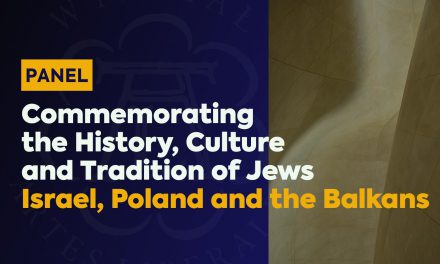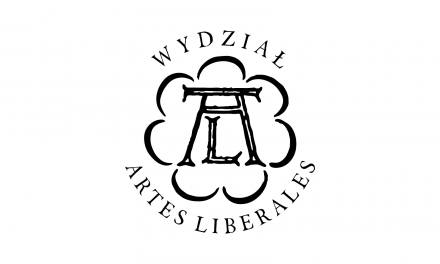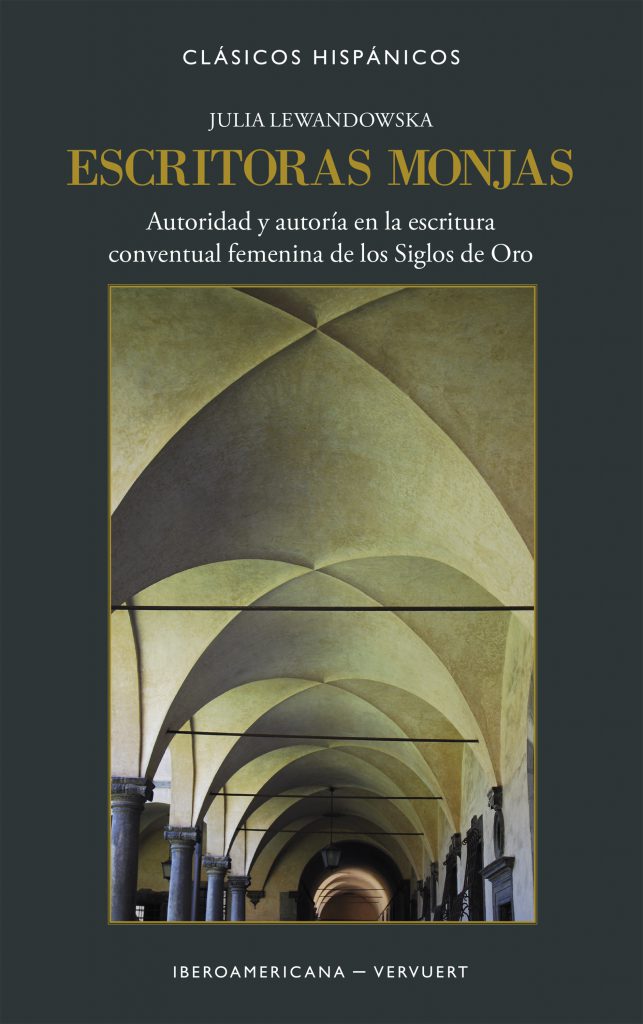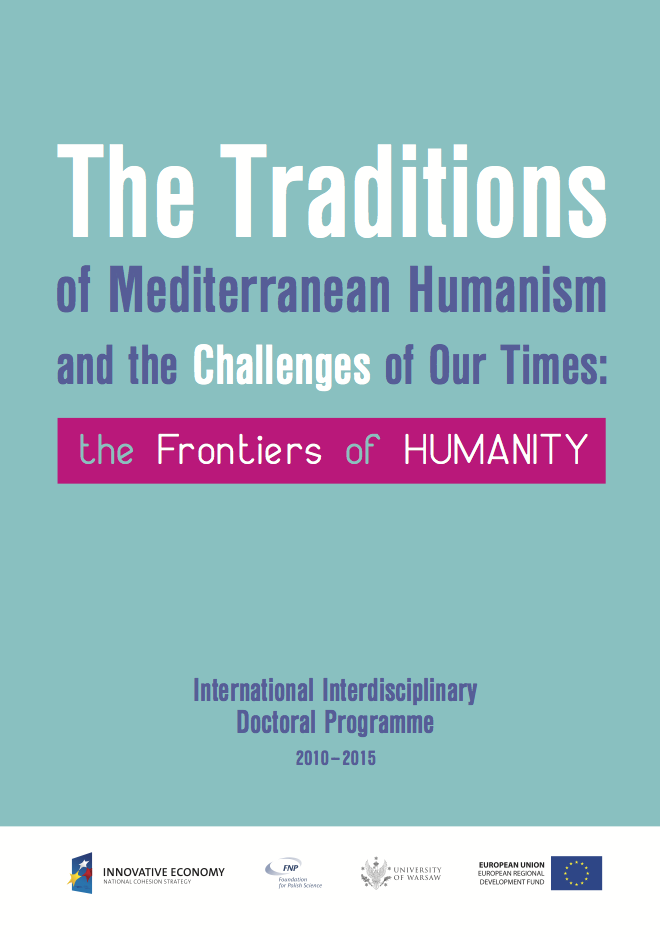Bio
Julia Lewandowska received her PhD in 2016 (summa cum laude) in cultural studies from the University of Warsaw where she is Associate Professor of Spanish Literature and Culture at the Faculty of “Artes Liberales”. She is a specialist of the female conventual culture of the Spanish Golden Ages, which she approaches from an interdisciplinary perspective (literary studies, cultural studies, history of religion, philosophy).
Currently she is the principal investigator (PI) of the ministerial research project entitled: The Mother Tongue: Textuality, Authority and Community in the Post-Teresian Reform Female Monasticism (c.1560-1700 ) (2020/39/D/HS2/00902) and a Research Fellow in two international research projects: Fastos, simulacros y saberes en la América Virreinal of the ILLA CCHS CSIC (PI Judith Farré Vidal, PID2020-113841GB-I00) and Prácticas culturales y discurso epistolar de las mujeres españolas de la primera Edad Moderna (BIESES 7) of UNED, Madrid (PIs: María Martos Pérez and Nieves Baranda Leturio, PID2022-140064NB-I00). Since 2021 she is general co-editor of the Brepols Publishers book series Women in Christianity. A Cultural History of Women Religious from Late Antiquity to the Early Modern Period.
She has been repeatedly a Visiting Research Fellow at the ADHUC. Centro de Investigación Teoría, Género, Sexualidad (Universitat de Barcelona) (2011, 2014, 2019, 2019, 2022; 2023); Instituto de la Lengua, Literatura y Antropología del CCHS of the Spanish National Research Council in Madrid (2021; 2022; 2023); and Instituto de Historia of the same institution (2013).
Her book Escritoras monjas. Autoridad y autoría en la escritura conventual femenina de los Siglos de Oro (Iberoamericana/Vervuert 2019) has been recognised by the Polish Association of Hispanists as the best monograph in cultural studies, history and literature of the biennium 2019-2020 and by the Association of Gender and Sexuality Studies AEGS with the honourable mention with the Victoria Urbano Prize for the best critical monograph of 2020.
Lewandowska has participated in more over thirty international conferences and has given more than twenty invited talks and lectures at, among others, the University of Barcelona; Universidad Autónoma de Barcelona; Universidad de Alicante; University of Münster, University of Chicago, Universidad de Santiago de Chile, National Spanish Council CSIC; and Polish Academy of Sciences. She is an active member of several international associations such as: European Society of Women for Theological Research (ESWTR); Polish Association of Hispanists (PSH); Association for Gender and Sexualities Studies (AEGS); GEMELA. Grupo de Estudios sobre la Mujer en España y las Américas pre-1800 and Indoctas. Grupo de estudio sobre la investigación y enseñanza de la escritura de mujeres (Universidad de Santiago de Chile).
Her research and teaching interests include issues related to Renaissance and Baroque literary culture, theology, rhetoric and the history of emotions in religious discourses.
Publications
- “Saint Anne The Teacher: Women’s Literacy, Sainthood and Biblical Memory in the post-Tridentine Spain”, in: Thaúmata: critical and underrepresented perspectives on hagiography and hagiographic studies, ed. Aitor Boada Benito. Leiden: Brill [in revision].
- “‘Cell of One’s Own’: The Notion of Female Enclosure in the Teresian Reform Spain”, in: Within Walls: The Experience of Enclosure in Medieval and Early Modern Christian Female Spiritualities, Julia Lewandowska and Araceli Rosillo (eds.), Brepols Publishers [in press].
- “Sentía y veía dentro de mí otro reino, otra luz, otra vida y otra comunicación: El imaginario teológico entre las autoras monjas después de la reforma teresiana. Caso de Teresa de Jesús María (1592-1641) y las Carmelitas Descalzas de la Encarnación de Cuerva”, in: Autoras y promotoras literarias y artísticas en la Edad Moderna, eds. Davinia Rodríguez Ortega y Alicia Vara López. Peter Lang/Universidad Pública de Navarra, 2023 [in press].
- “To pick up the meagre ones of the world: Preliminaries, Ambiguous Misogynies and Female Authorship in the Early Modern Spanish Conventual Writing”, Women’s Writing, Special Issue: Early Modern Textual Misogynies, vol. 2, Carme Font Paz (ed.) [in press].
- “Las teólogas de la España postridentina: Valentina Pinelo y el Libro de las alabanças y excelencias de la gloriosa Santa Anna (Sevilla, 1601)”. In: Strosetzki, C., Hernando Morata, I., Wehr, C. (eds.) El teólogo en la España de la temprana modernidad. Formas de vida seculares y espirituales. Impacto político, social y estético. Prolegomena Romanica. Beiträge zu den romanischen Kulturen und Literaturen. J.B. Metzler, Berlin, Heidelberg, 2023: 177-200. https://link.springer.com/chapter/10.1007/978-3-662-67088-0_12
- “La retórica de la alteridad en los textos de las monjas altomodernas. Caso de Teresa de Jesús María (O. C. D., 1595-1641)”, Temas Americanistas, 50, junio 2023: 29-50. https://revistascientificas.us.es/index.php/Temas_Americanistas/article/view/20727
- “Communitas y auctoritas: repensar la comunidad religiosa femenina de la alta modernidad. Caso de Ana Francisca Abarca de Bolea (O. Cist., 1602-ca. 1686) y las cistercienses de Casbas”. Studia Áurea. Revista de Literatura Española y Teoría Literaria del Renacimiento, 16, 2022: 15-34. https://studiaaurea.com/article/view/v16-lewandowska
- Review: “Las escritoras españolas de la Edad Moderna. Historia y guía para la investigación”, Nieves Baranda Leturio/Anne J. Cruz (eds.), Madrid: UNED, Romanische Forschungen 133 (2), 2021, pp. 264-270.
- “Am I That Body?”: Mystical Bodies and Polyphonic Bodies in the Early Modern Nuns’ Spiritual Autobiographies”, Teksty Drugie, (1) 2020, pp. 17-35. chrome-extension://efaidnbmnnnibpcajpcglclefindmkaj/https://tekstydrugie.pl/wp-content/uploads/2021/04/teksty-drugie-tom-1.2020R-2.pdf
- Monograph „Escritoras monjas: Autoridad y autoría en la escritura conventual femenina de los Siglos de Oro”, Madrid-Frankfurt: Iberoamericana-Vervuert, 2019. https://www.iberoamericana-vervuert.es/FichaLibro.aspx?P1=162506
- “Autoría, profetismo y agencia religiosa femenina: una aproximación al caso de María de Jesús de Ágreda”, in: Voces conventuales: escritura y autoría femeninas en Hispanoamérica (siglos XVII-XVIII), Beatriz Ferrús Antón y Ángela Robledo (eds.), Cuadernos de América sin Nombre, 43, Publicaciones de la Universidad de Alicante, pp. 49-92. chrome-extension://efaidnbmnnnibpcajpcglclefindmkaj/https://rua.ua.es/dspace/bitstream/10045/125019/3/CuadAmericaSinNombre_43.pdf
- Review: „¿Qué es una autora? Encrucijadas entre género y autoría”, Aina Pérez Fontdevila y Meri Torras Francés (eds.), Barcelona: Icaria, Nomadías 28, pp. 165-172. doi:10.5354/0719-0905.2020.57458 https://nomadias.uchile.cl/index.php/NO/article/view/57458
- „I była matką Dziewicy Maryi i babką Boga i człowieka”: kobiece genealogie w interpretacjach źródeł wiary”, Teksty Drugie, 2018, 6, pp. 31-53. https://journals.openedition.org/td/13107
- “Ipsa sua melior fama: repensar la autoría y autoridad literaria femenina de las escritoras religiosas de la Alta Edad Moderna”, in: Escribir como mujer: ¿hacia una reescritura de la autoría?, Karolina Kumor (ed.), Instituto de Estudios Ibéricos e Iberoamericanos de la Universidad de Varsovia, 2017, pp. 57-76. chrome-extension://efaidnbmnnnibpcajpcglclefindmkaj/https://www.iberystyka.uw.edu.pl/sites/default/files/Documents/adamczykmagda/167/La_Voz_Dormida_Congreso.pdf
- Review: “Los papeles del autor/a. Marcos teóricos sobra autoría literaria. Aina Pérez Fontdevila y Meri Torras Francés (eds.), Madrid: Arco/Libros, 2016”, 452ºF. Revista de Teoría de la literatura y Literatura Comparada, 18, pp. 215-220. https://revistes.ub.edu/index.php/452f/article/view/20403
- “Jak pisać o pisarkach. Podsumowania”, [How to Write about Female Authors? A Summary], Joanna Partyka (co-author), Terminus, 18, zeszyt 2 (39), 2017, pp. 117-130. https://ejournals.eu/czasopismo/terminus/artykul/jak-pisac-o-pisarkach-podsumowania
- “Non est ad astra mollis e terris via: la escritura, el cuerpo y la herida en Teresa de Jesús María (María de Pineda de Zurita) [“Non est ad astra mollis e terris via: Writing, the Body and Wounds in the Work of Teresa de Jesús María (María de Pineda de Zurita)], in: Laberintos de género. Muerte, sacrificio y dolor en la literatura española, Josefa Álvarez (ed.), Sevilla: Renacimiento, 2016, pp. 33-56.
- “Est virgo hec penna, meretrix est stampificata: Autoría y autoridad literaria en las escritoras de la alta Edad Moderna” [Est virgo hec penna, meretrix est stampificata: Literary Authorship and Authority among the Female Writers of the Early Modern Period], in: A medio camino. Intertextos entre la literatura y el derecho, Diego Falconí Trávez (ed.), Valencia: Tirant Lo Blanche, 2016, pp. 165-195.
- “Vulnerable Geometries: Rethinking the Humanities”, in: Imagine There Were No Humanities. Transdisciplinary Perspectives, Warszawa: DiG, 2015, pp. 35-41.
- “Teleology, Rhetoric and Early Modern Women’s Writings: Towards a Different Reading of Sor Juana Inés de la Cruz´s “Athenagoric Letter”, in: Women Past and Present: Biographic and Multidisciplinary Studies, Maria Zina Gonçalves de Abreu and Steve Fleetwood (eds.), Cambridge and Newcastle: Cambridge Scholar Publishing, 2014, pp. 80-95.
- “La consciencia estratégica del discurso: acerca de las cartas de madre María de Jesús de Ágreda al Rey Felipe IV” [The Strategic Consciousness of Discourse: Approach to the Letters of Mother María de Ágreda and the King Philip IV], Planeta Literatur. Journal of Global Literary Studies, 2, pp. 57-72. https://cejsh.icm.edu.pl/cejsh/element/bwmeta1.element.desklight-df0a1882-928f-453d-90c2-51f477eb8989
- “Cuando escrivo me hallo bollando: autoridad y autoría en el Libro de las Alabançaz y Excelencias de la Gloriosa Santa Anna de Valentina Pinelo” [Cuando escrivo me hallo bollando: Authority and Authorship in the Book of the Excellences and Praise of the Glorious Saint Ann by Valentina Pinelo], in: Ausencias. Escritoras en los márgenes de la cultura, Mercedes Arriaga Flórez, Salvatore Bartolotta, Milagro Martín Clavijo (eds.), Sevilla: ArCiBel Editores, 2013, pp. 695-703.
- “(Des)alienar las voces femeninas del convento: «La celda propia» de Sor Marcela de San Félix” [(Des)alienating the Female Voices from the Convent: «The Cell of One´s Own» of Sister Marcela de San Félix], Itinerarios. Revista de estudios lingüísticos, literarios, históricos y antropológicos, 18 (2013), pp. 11-34. chrome-extension://efaidnbmnnnibpcajpcglclefindmkaj/https://itinerarios.uw.edu.pl/api/files/view/2059294.pdf
- “Teresa Enríquez: w stronę nowego modelu religijności kobiecej” [Teresa Enríquez: Towards a New Model of Female Religiosity], Kwartalnik Historii, Nauki i Techniki, Polish Academy of Sciences, 3-4, pp. 127-135. https://bazhum.pl/bib/number/1365/
- “Sor Juana Inés de la Cruz y la crítica literaria feminista: contribuciones y controversias” [Sister Juana Inés de la Cruz and the Feminist Literary Critique: Contributions and Controversies], Itinerarios. Revista de estudios lingüísticos, literarios, históricos y antropológicos, 15, pp. 43- 66. chrome-extension://efaidnbmnnnibpcajpcglclefindmkaj/https://itinerarios.uw.edu.pl/api/files/view/2059195.pdf



![Prof. Leo Rafolt: „Rituals of the institutionalization” [recording]](https://al.uw.edu.pl/wp-content/uploads/2023/04/FB_IMG_1680638778007-440x264.jpg)





![Prof. Leo Rafolt: „Rituals of the institutionalization” [recording]](https://al.uw.edu.pl/wp-content/uploads/2023/04/FB_IMG_1680638778007-45x45.jpg)




